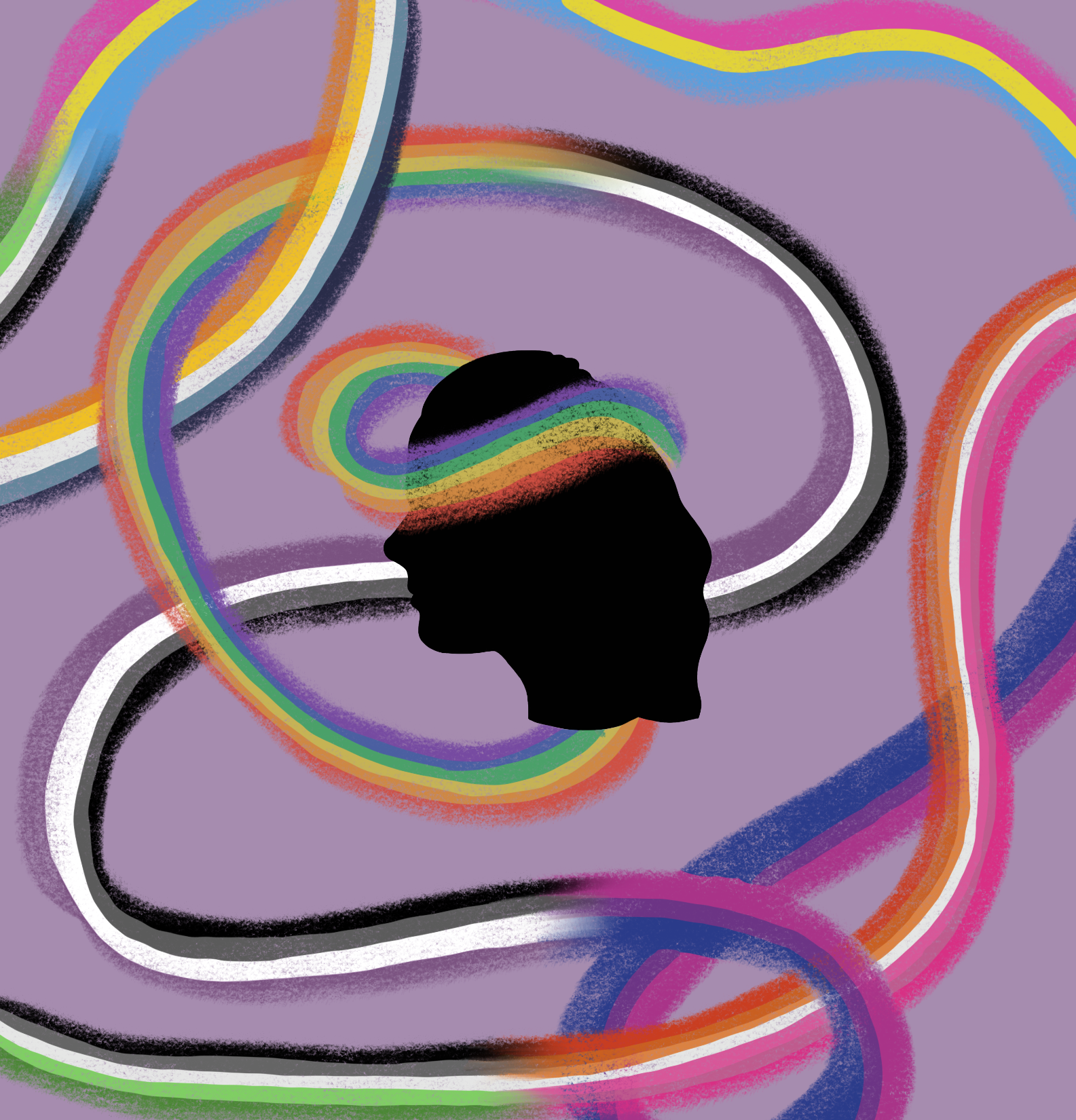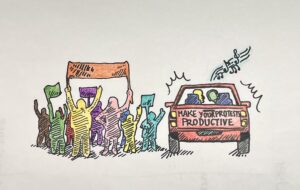Seven years after initially coming out, I changed how I label my sexuality. The “bi” was dropped from my romantic attraction and replaced with a daunting “a,” making my new identity “asexual aromantic.”
The change was a long time coming, but I hesitated to tell those closest to me because I feared their reactions. They certainly wouldn’t have espoused any anti-queer sentiments; I just didn’t want them to think I had spent the last seven years lying to them. I especially didn’t want my bi friends to think I had been “faking it” all these years, as if I had entered their space as an imposter.
And, as I slowly slipped my new labels into conversations, I realized the problem: Our culture posits an overly rigid understanding of sexuality. If someone is straight, they will always be straight. If they are gay, they will always be gay. What about before they realized their queerness? Well, they must’ve been gay before then too—they “just didn’t know it yet,” or “were in denial.”
The rhetoric that we were born a certain sexual orientation was created to counter the conservative belief that people are born straight and homosexuality was a choice, a social ill to be corrected. But this notion, as well as its rallying cry “Born this Way,” has perpetuated the untrue—and potentially harmful—notion that our sexuality has always been and will always be the same.
To begin with, sexuality isn’t always static. While some people identify as sexually fluid—an identity that recognizes that sexuality can change over short or long periods of time—the fluidity of sexuality is not limited to people who identify with said label.
That being said, it must be noted that sexual fluidity is not necessarily a reality for everyone. In fact, many people do not experience sexual fluidity, especially over short periods of time. Thus, the acceptance of sexual fluidity should not be taken to condone conversion therapy or the idea that queerness is “just a phase.” When someone identifies with a certain sexuality, it is very much their lived reality; suggesting to them that it will eventually change can be as harmful as forcing them to see it as rigid. Instead, I believe that sexuality can change, not that it will or should.
The point is not to have everyone identify as sexually fluid. Instead, I contend that being open to the idea that our sexuality can and may change can reduce queer (and perhaps even straight) people’s anxiety surrounding their sexual identity and encourage them to live their most authentic selves without fear of alienation.
Treating sexuality as static creates the pressure of finding the perfect label. While not everyone feels comfortable with labels, they are a valuable way to find a community within the vast and diverse group of LGBTQ+ identities. When you are new to the LGBTQ+ community, choosing a label can be a liberating experience that finally provides the affirmation that questioning our sexuality takes away. It also gives us a sort of mini-family, a community that we can relate to and that can help us find our bearings.
But picking a label is also riddled with anxiety. The culturally reinforced idea that sexual identity is permanent and predetermined at birth, or at least from a very young age, makes choosing a label especially stressful. And, while not everyone’s sexuality changes over time, coming to terms with the fact that it may have changed becomes extremely difficult in a world where it is considered irreversibly final.
What if no one believes you? What if everyone thinks you were lying beforehand? What if that first queer community you found rejects you for “deceiving” them?
Our rigid conceptions of sexuality create the assumption that anyone who changes their label must’ve been lying. It implies that all of their past relationships were invalid and that they no longer have any right to the communities they once identified with. But this is categorically false.
At the time that I identified as biromantic, I truly believed myself to be biromantic. The fact that my labels have since changed does not negate the experiences I had. I no longer identify as bi, but this does not mean that being bi was not a reality for me at the time.
The process of growing and changing our labels should not be one of anxiety, but rather one of joy, which can only be truly achieved if we dismantle our stiff conceptions of sexuality. Rather than being scared that we will hurt the people around us by announcing a change, we should be more concerned with living authentically. We should be able to look back at our old sexuality with fondness and still feel connected to the peers with whom we once surrounded ourselves.
Being forced to hide parts of yourself has long been a reality for queer folks. The feeling that you cannot show people your thoughts or must be careful about how you express yourself creates shame and anxiety—the antithesis of the self-acceptance we all crave.
By acknowledging that labels can change, choosing a label within the queer community becomes easier. We will be more compelled to choose what feels right at the moment without fear that we are “wrong” about our sexuality. We will be more open to experimenting with different labels and experiences that can help us on a path of self-discovery.
If we begin to embrace that sexuality may be fluid, we lift the anxiety that comes with having to “figure ourselves out.” We will have more freedom to explore what we feel to be the most authentic in our current moment without the fear of being wrong. We will be free from fear of rejection from the communities we once were a part of. And, maybe, if I come out again, it will be without the hurtful reactions and the problematic questions I was met with last time. Instead, my friends will embrace me with open arms, and I will finally be able to do the same for myself.






Ugh. Conversion peddler.